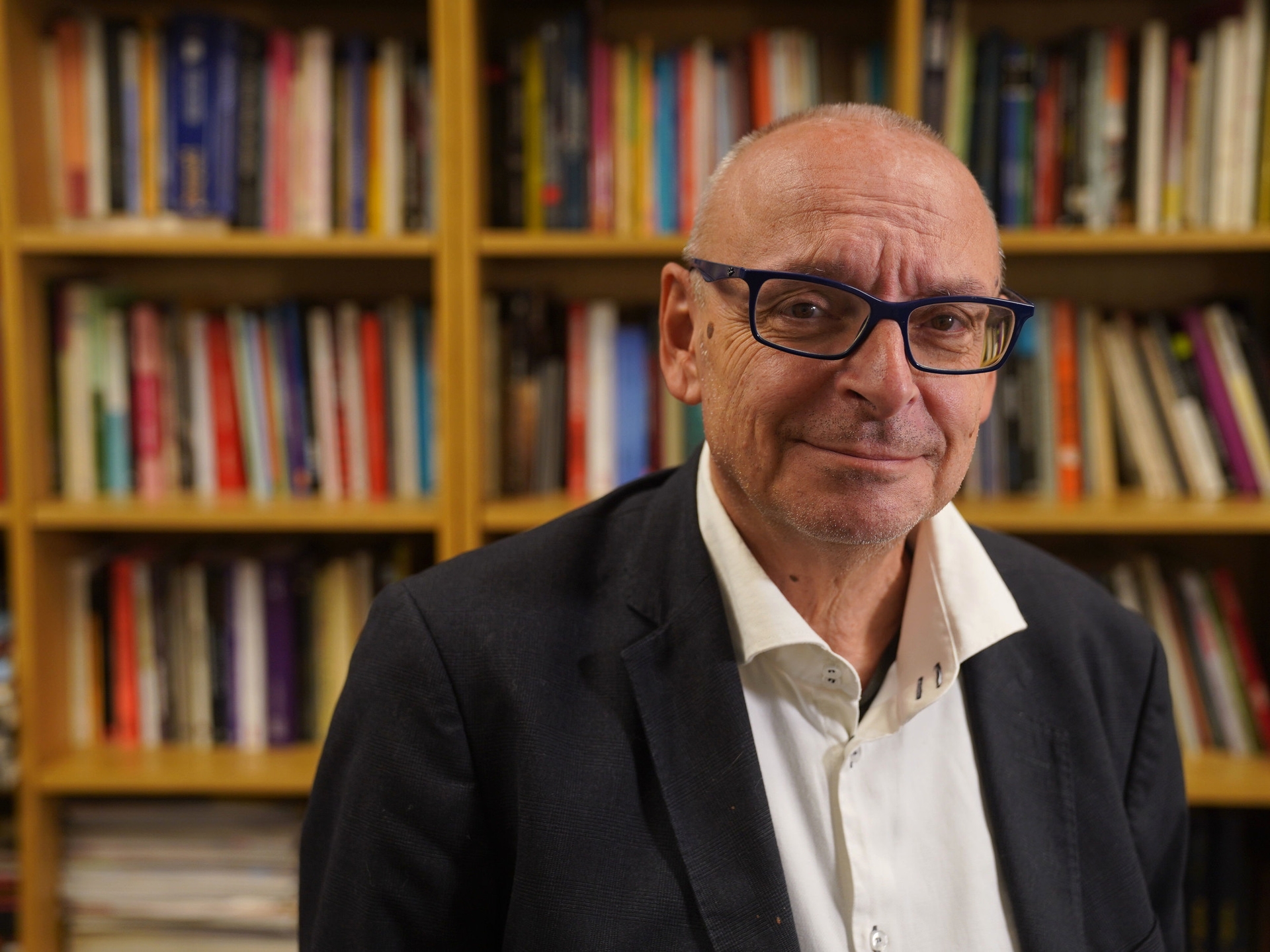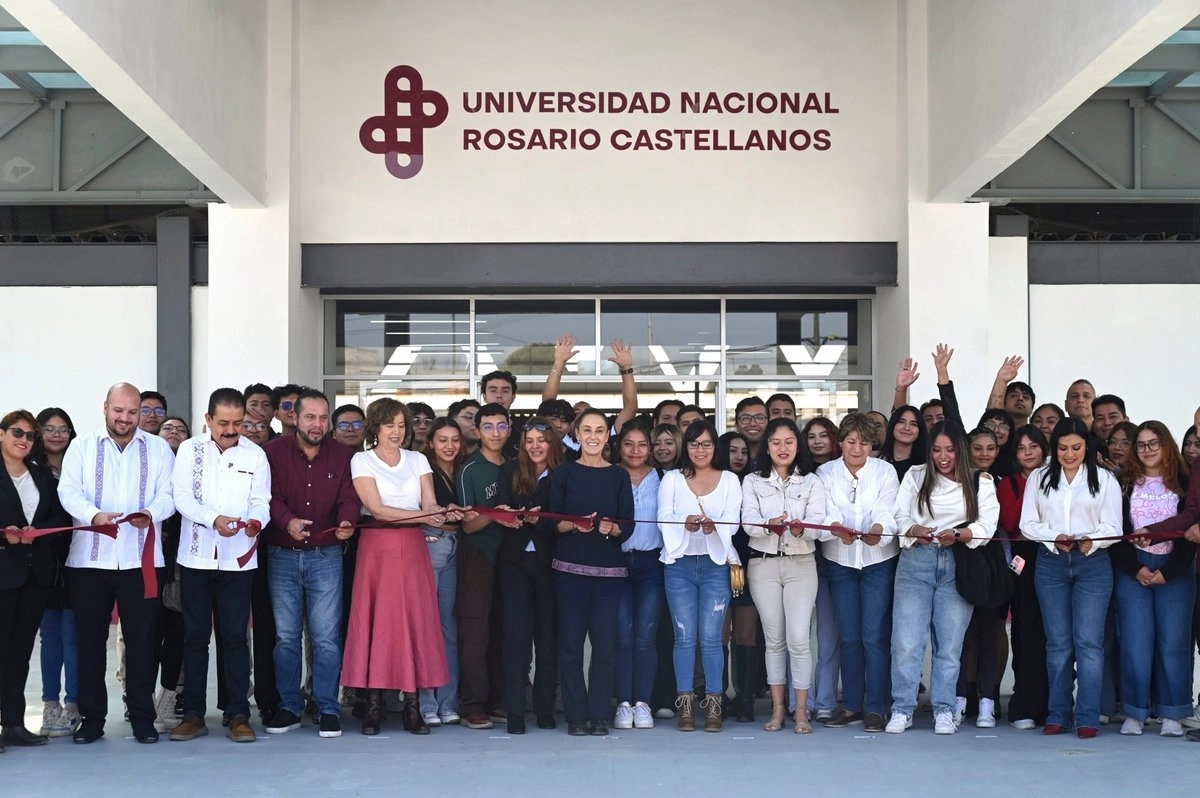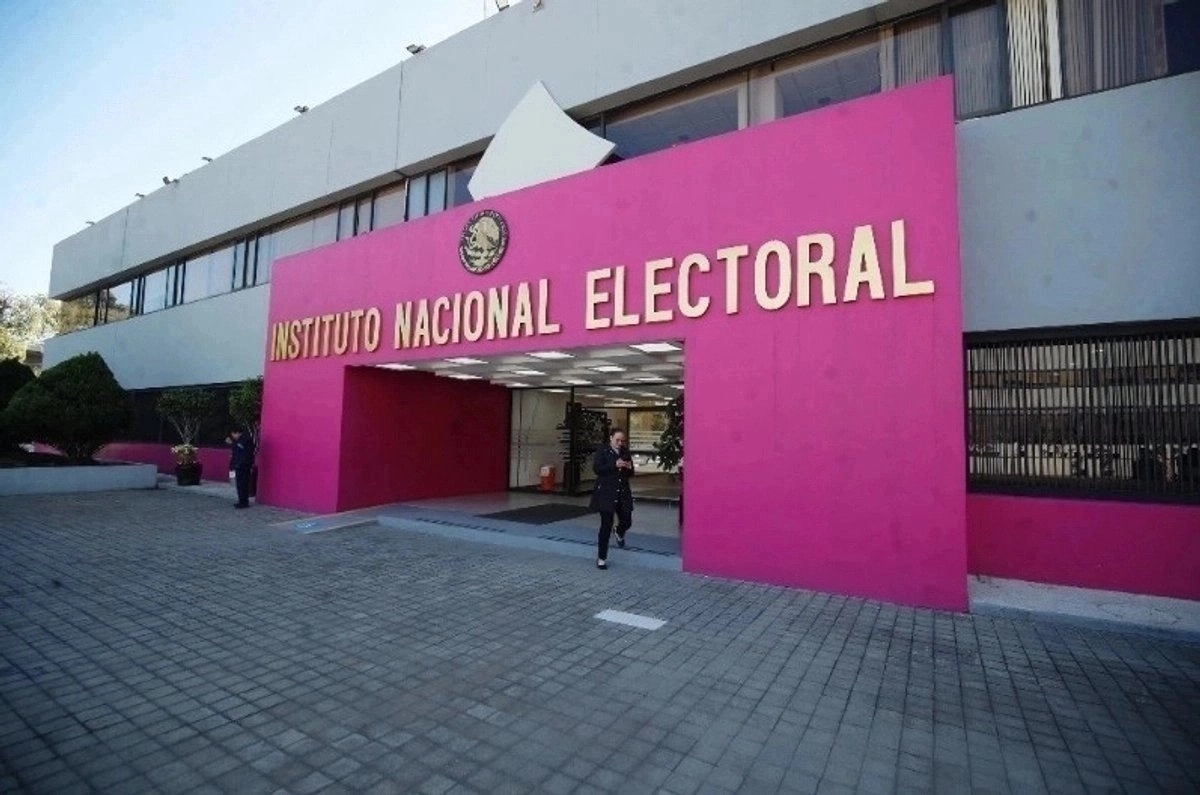Loris Zanatta: "Messianic expectations quickly lead to frustration when economic miracles don't materialize."

-Has the Argentine political phenomenon surrounding Javier Milei and his invocation of the "forces of heaven" opened a new era in the relationship between politics and religion in the country?
- Milei's emergence and his explicit call to the "forces of heaven" to combat the Peronist-Kirchnerist model does not represent a break with religion in Argentine politics. On the contrary, it implies a transformation clearly inspired by religion. While Peronism bases its legitimacy on a traditional communitarian Catholicism, Milei incorporates elements of evangelical, prophetic, and messianic religiosity into his rhetoric, appealing to the idea of redemption and the promised land, but with a strong neoliberal imprint of prosperity and individualism. This combination of political discourse with an evangelical prosperity theology reveals the weakness of the secular space as a political alternative in Argentina and the influence of religion as a cultural matrix and political mobilizer. However, this consensus founded on faith is highly volatile, as messianic expectations quickly generate frustration when economic or social miracles fail to materialize.
- So you're saying that Milei represents a new phenomenon of political religiosity? It would seem he's an absolute devotee of the market. Isn't that so?
- The important thing isn't the market, but plurality. There have been many devotees of the market, even within Peronism, like Menem, for example. Milei represents a religious reinvention in Argentine politics that doesn't oppose Peronism but rather challenges it by appealing to an alternative religious imaginary. Both embody the persistent weight of religion in politics, highlighting Argentina's difficulty in consolidating a truly secular and lay political space. From this religiosity, democratic institutions themselves are challenged. The law of the People of God predominates. This is pre-democratic.
- At the same time, the President reveals himself as a devout Jew. Doesn't that challenge the traditional Catholic order?
- I have the impression that much more than the Judaism President Milei claims to practice, which is undoubtedly in good faith, it's a very orthodox, fundamentalist kind of Judaism. But we also need to analyze his recent gestures, such as going to inaugurate evangelical churches. I have the impression that, in this case (I don't know if it's his idea or that of his advisors), he once again reveals that evangelicalism is equally or more Manichean than Catholicism in its worldview, but it possesses a pro-capital theology, a theology of prosperity, the promise of wealth. If one reads Milei's speeches, one detects that prophetic evangelical vision: suffer today, because tomorrow we will be rich and live in prosperity.
- Your latest book, *Bergoglio: A Political Biography*, is a very powerful and detailed work on the Pope's political history. What did you see, what do you observe in it?
- The trajectory of the Argentine Church, particularly through the figure of Bergoglio, demonstrates that the religious dimension has been key in shaping national political mentalities. In this understanding, the Argentine people have traditionally been conceived as essentially Catholic, which legitimized the political sphere under a religious moral and identity umbrella. This link has also fostered the weakness of modern democratic institutions, as the people have contested their sovereignty between political and religious institutions.
- Didn't Bergoglio, later Pope, represent, in your view, an Argentina that was supportive and sensitive to the poor?
- The religious dimension in Bergoglio's figure is linked to this, from my point of view, unhealthy, almost pathological, interweaving of politics, religion, and nation. Bergoglio, like the entire hegemonic current of the Argentine Church or local Catholicism, maintains the idea that the nation bases its legitimate identity and authority on Catholic roots, constantly challenging the people for democracy.
- The underlying idea, sometimes explicit and sometimes not, in Bergoglio and his entourage is that political legitimacy resides in the people, but which people?
- It is the pure people of evangelization, whose culture is essentially Catholic. Therefore, political space and institutions are legitimate to the extent that they respect the Catholic culture of the people.
- Did Bergoglio explain that?
Bergoglio said it in his own way, with twisted but clear expressions when he affirmed, according to Saint Thomas (although he was not a Thomist), the classical Catholic idea that sovereignty comes from God through the people. In this way, the Church has a kind of right to protect the political order.
- In your view, does Catholicism produce Peronism, or is Peronism an epiphenomenon of that deep-rooted Catholicism?
Peronism emerges as the ripe fruit of the fusion of politics and religion, consolidating a national vision founded on Catholic religiosity that sustains social imaginaries marked by a communitarian identity and populist paternalism. It is not only a political movement for economic redistribution, but a regime that expresses a profound moral, cultural, and religious matrix, evidenced by its electoral and social persistence. In this context, the emergence of Milei and his appeal to the "forces of heaven" does not represent a break with religion but rather a transformation in religious inspiration. While Peronism legitimizes its foundation in a traditional communitarian Catholicism, Milei incorporates elements of evangelical, prophetic, and messianic religiosity, with a neoliberal imprint of prosperity and individualism. This combination reveals the weakness of the secular space and the relevance of religion as a cultural matrix and political mobilizer. However, this consensus in faith is highly volatile, as we mentioned before, as messianic hope generates frustration when social or economic miracles fail to arrive. Finally, the phenomenon has a sociological background linked to the high religious intensity of vulnerable and poor sectors, especially in the Buenos Aires metropolitan area, where political identification is intertwined with religious and communitarian affiliation, traditionally reinforced by Catholicism and now by the growth of evangelicalism.
-Did you vote for Milei before because of his messianism?
The family-political dynamic, marked by loyalties reflected in successions of power (as in traditional Peronism and now with Milei and her sister), is part of this political culture deeply rooted in a communitarian, rather than individualistic, vision of power.
- So democracy cannot coexist with popular religiosity?
- Modern democracy, where it is consolidated, inevitably implies an emancipation of the political sphere from the religious sphere.
- You observe and emphasize a long-standing phenomenon in Argentina: the family in power.
- It's very relevant: Perón and Eva Perón; Perón, Isabel, and now the siblings in power.
- How does this relate to potential Argentine problems?
- It's not unique to Argentina. It's typical of societies where Enlightenment universalism hasn't taken deep root. "Familism" maintains that, before humanity, universal citizenship, and legal equality, blood ties prevail—natural, not abstract or legal.
- What are the consequences of this “familism”?
- In religious societies, the natural bonds are the community of birth, the family, the village, the territorial, professional, religious, or racial community. These are the true homelands. That was the case in the Middle Ages. And now in the spaces where this sociopolitical configuration predominates. These are loyalties based on blood ties. In the family, I can be supportive to the point of protecting, even absurdly, a murderous son. But when I go out into society, I feel no solidarity whatsoever, because I don't feel bound by the law, but by the family. This logic can lead to the extreme of the mafia, which also calls itself "family."
- In Argentina, the predominance of the family often means that family ties prevail over universal citizenship, due to the deep legacy of Catholicism, which has imposed its hegemony also in social and political spheres. In just 70 years, Argentina has had numerous two-headed regimes: Perón and Eva Perón; Isabel, and then Isabel, president because she was his wife, which is absurd; then Néstor and Cristina, who succeed each other and balance each other out; and now Milei and her sister.
- It's that they trust each other more than anyone else.
A few days ago, I read a quote from Milei that left me speechless. He said: “I take care of the administration; I was elected by administration; I leave the politics to my sister.” In a democracy, it's supposed to be the other way around: the president elected by the people is the politician, the one who proposes guidelines, moral values, and a path. He then chooses those who manage, but the sovereign people choose the one with the political program. Here, it's the other way around; he delegates politics to someone else. To me, this is completely sickening. It's a form of amoral familism, as anthropologists say: family ties not based on ethical criteria, but on natural ones, loyalties that end up being complicity.
Loris Zanatta came to Argentina for the first time at 29. Today, he's 63. He claims to have seen more continuity than fractures. That Argentina repeats itself. He's a full-time academic, but he's more than that; he's an intellectual who enjoys challenging archaic ways of thinking.
He is a professor open to new intellectual explorations. Thus, for him, Fidel Castro is "The Last Catholic King." He wrote a monumental biography in which he demonstrates the profound identity-based influence of Spanish National Catholicism on the Castro regime, founding a new state religion.
His latest book, "Bergoglio, a Political Biography," is an entomological dissection of the life of a man who was Pope, but who, before his pontificate, stood as a living crossroads between Peronism and the Church, uniting within himself the Argentine tradition, and not just the Argentine one, which "disputes the legitimacy and validity of democratic institutions from a religious perspective."
Zanatta is the director of the University of Bologna at its Buenos Aires campus. When he visits Argentina, at least once a year, he spends hours at the secluded desks of UNIBO, right next to the Coliseo Theater, teaching classes, but also writing and researching. He does the same in Italy, where he wanders through the academic halls with the fluidity of a professor who seems to have lived there since the founding of that university, the oldest in the world. Zanatta embodies the founding spirit of higher education, of the halls, of the books, and of the specialties.
He is also a professor of the Master's in Journalism program at Grupo Clarín and the University of San Andrés. He doesn't need a microphone; he speaks in his classes with a passion that is audible and crystal clear to everyone.
On the streets of Bologna, undoubtedly, walking with his dog Giove and his wife Giulia, he seems happy. He calls Giove and says he can hear his voice on the video call, and that he usually wags his tail. But this torments him a little; he called, and Giove felt offended, and went on with his life, as if Loris weren't calling him from Argentina, which he loves so much. He has been visiting this country for decades. He has met countless protagonists. He never gives in to demagoguery or uncritical praise of a society he knows so deeply.
He detects demagoguery and populism with the intuition and reason of those who know, those who study, those who establish foundations. Through his work and his personality, he creates a unique inhabitant, a peninsular and Bolognese to the core, also Argentine for his dedication to these native adventures and misadventures, but never a nationalist. An enlightened democrat. A defender of the Enlightenment and political rationalism. A voice that never yields to complacent silence or unfounded eloquence. His indispensable perspective teaches us all.
Loris Zanatta is a professor of Latin American History at the University of Bologna, both in Italy and Argentina, where he also directs the Master's program in International Relations. He is the author of numerous books published in Europe and Latin America and writes for newspapers and magazines on current topics. He is a member of the Academy of History. His notable books include From the Liberal State to the Catholic Nation; Perón and the Myth of the Catholic Nation; A Brief History of Classical Peronism; Eva Perón: A Political Biography; History of Latin America; The Justicialist International; Fidel Castro: The Last "Catholic King"; and Jesuit Populism (Edhasa). He is currently publishing Bergoglio: A Political Biography (Planeta).
Loris Zanatta is a professor of Latin American History at the University of Bologna, both in Italy and Argentina, where he also directs the Master's program in International Relations. He is the author of numerous books published in Europe and Latin America and writes for newspapers and magazines on current topics. He is a member of the Academy of History. His notable books include From the Liberal State to the Catholic Nation; Perón and the Myth of the Catholic Nation; A Brief History of Classical Peronism; Eva Perón: A Political Biography; History of Latin America; The Justicialist International; Fidel Castro: The Last "Catholic King"; and Jesuit Populism (Edhasa). He is currently publishing Bergoglio: A Political Biography (Planeta).
Clarin





